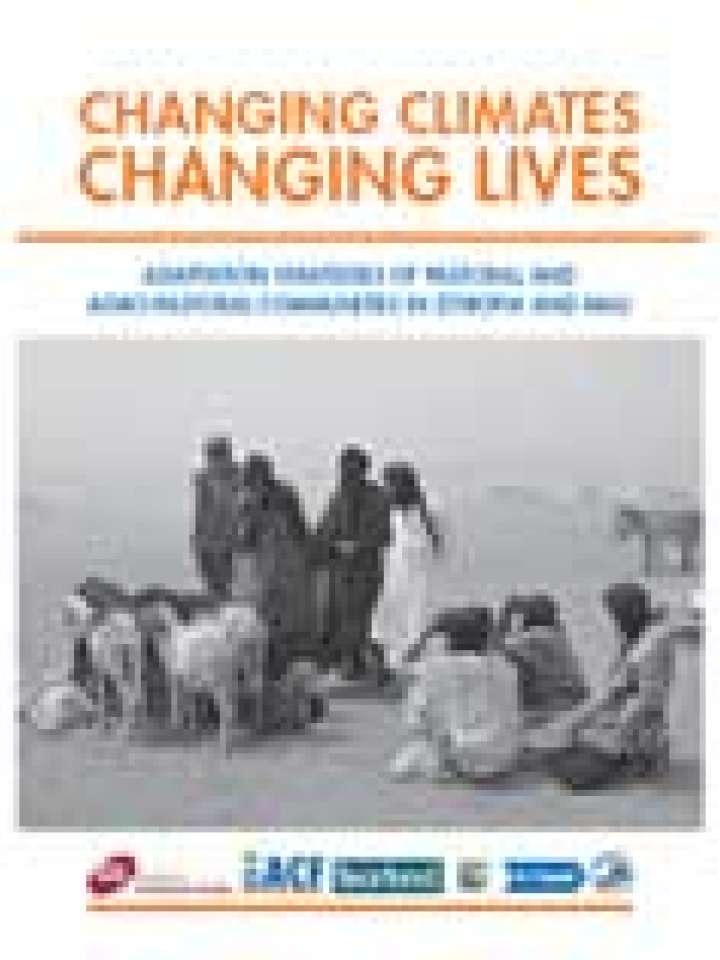Changing climates, changing lives: adaptation strategies of pastoral and agro-pastoral communities in Ethiopia and Mali
This report explores the implications of climate change for pastoralists and agro-pastoralists in Ethiopia and Mali. It is intended to support the work of NGOs, policy makers and researchers to improve coherence in efforts linking climate change with disaster risk reduction (DRR) and food security and livelihoods (FSL).
Pastoral households in Ethiopia and Mali are finding it increasingly difficult to tackle current climate risks and meet their food and nutrition needs, reveals the report. It asserts that actors investing in climate change adaptation need to pay more attention to local level changes in household response strategies and inter-household support structures. The current processes of change - the changing risks, changing responses and changing support structures at different levels - together determine people's resilience to shocks and stressors. Access to new knowledge, technology and financial resources are necessary but not sufficient to adjust livelihoods, as people's responses, innovations and ability to adapt are often constrained by a range of structural and historical factors.
The report shows how people perceive climate variability and other shocks, as well as which strategies they use to respond to these changes. It also explores the role of local institutions, both formal and informal, in determining what options people have to adapt and their role in ensuring food security. Examining local perceptions and responses to change helps to identify more precisely what support people require to strengthen their climate resilience. It also helps to identify specific constraints that different actors and groups face, and also uncovers a more holistic understanding of adaptation in relation to particular socio-economic, political or historical contexts. Drawing on local perceptions, policy makers will be better informed of the impacts of climate change as they are felt on the ground, the challenges and opportunities that people face in adjusting their livelihoods, and what further assistance should be provided.
Recommendations include:
- NGOs should ensure that people’s local knowledge of climate change impacts and livelihood responses is connected to relevant decision-making processes.
- National governments should improve policy coherence, coordination, synergy and sectoral integration between national development goals, and diverse adaptation needs, incorporating climate risk across sectors.
- Donors should support governments to base development planning and policies on climate risk information and analyses to identify other ways of strengthening people’s climate resilience, such as through social protection measures and other forms of livelihood support and asset-building.
- Donors should support governments with longer term, predictable funding arrangements to ensure adaptation and food security, by funding NAPAs and incorporating contingency plans.
Explore further
